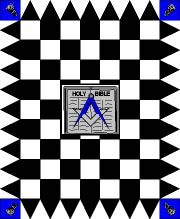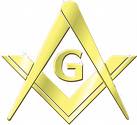
What you always wanted to know about Freemasonry
Ritual & Secrets
Is Freemasonry a secret society?
No. It is sometimes said that Freemasonry is a "Society with secrets, not a secret society." In point of fact, however, any purported Masonic "secrets" were made public several centuries ago in London newspapers, and today on the Internet, and in many books on the subject. As Benjamin Franklin once said, "The great secret of Freemasonry is that there is no secret at all."
What about secret handshakes and passwords?
Freemasonry, often called the "Craft" by its members, is founded on metaphors of architecture. Following the practice of the ancient stonemason guilds, Freemasons use special handshakes, words, and symbols to not only to identify each other, but to help, as William Preston said in 1772, "imprint upon the memory wise and serious truths."
Although every new Freemason takes an oath - and vows to keep secret the metaphors of Masonry - the metaphors are only used to help Masons become better men; and there's certainly no secret surrounding what it takes to be good and true.
What is Masonic "ritual"?
The nature of Masonic ritual is both complex and beautiful. "Ritual" is a formal ceremony of initiation which recites certain tenets and truths that have been passed down for generations - mostly from mouth to ear. This "Ritual" takes the form of lectures and theater in the Lodge, and is used to teach new Masons the value of true friendship, the benefits of knowledge, and the necessity of helping those in need. It speaks to the power and impact our ritual has on men's hearts and minds because it has stood the test of time for more than 300 years. Although our world has changed dramatically during that time, our ritual is virtually the same.
Not everyone will want to learn the ancient ritual - as it takes great time and study - but those Masons who chose to learn it are rewarded with the satisfaction of upholding a powerful tradition and helping their fellow brothers further their Masonic understanding.

